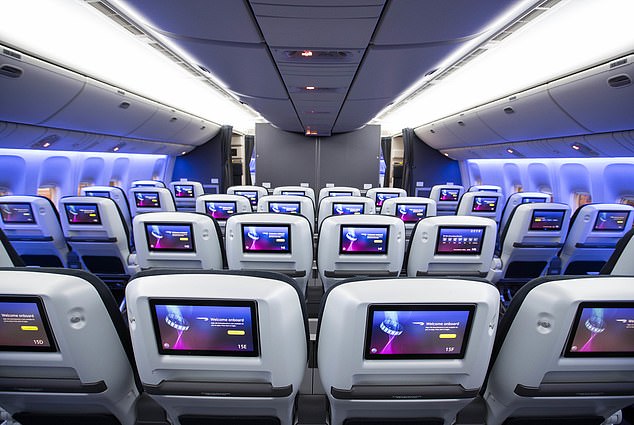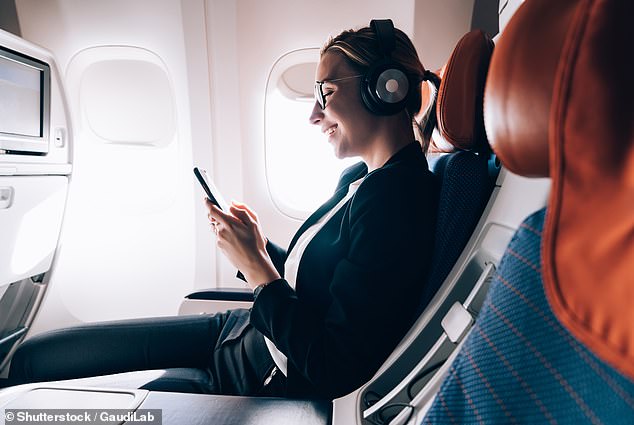British Airways is set to trial a new system that could change how we watch movies and shows on long flights.
The airline is launching a trial called ‘Bring Your Own Device’ (BYOD), which will allow passengers to stream all the usual in-flight entertainment from their seat-back screens straight to their phones, tablets, or laptops.
This is welcome news for passengers who’ve ever struggled with malfunctioning seat-back screens, especially on long-haul flights where travellers are left with limited options to pass the time.
The trial is set to start later this month on selected long-haul flights out of London Heathrow, specifically on BA’s A380s, Boeing 787-9s, and the older 777-200s.
Passengers on these flights will be able to use the same entertainment options they usually get from the in-seat screens – but streamed directly to their personal gadgets.
British Airways has made it clear that this won’t mean the seat-back screens are going away anytime soon – at least not yet, as the new system will be offered alongside the existing screens.
However, it’s worth noting that a number of other airlines have already started ditching seat-back screens on short-haul flights.
Etihad, Qantas, and American Airlines are among the carriers removing them to save weight and costs, relying more on passengers’ own devices instead.

British Airways is launching a trial called Bring Your Own Device (BYOD), which will allow passengers to stream all the usual in-flight entertainment from their seat-back screens straight to their phones, tablets, or laptops
While some travellers are excited about the move as a sign that airlines are adapting to how people regularly travel these days, others may not quite be ready to say goodbye to the built-in entertainment just yet.
Many people still like having the choice of a big screen in front of them, and phones and tablets have their own limitations, such as running out of battery mid-flight.
For the unfortunate few who have accidentally packed their chargers in their checked luggage, they might be stuck altogether with no way to keep watching.
Another big factor is WiFi on planes, which still isn’t up to scratch, according to Travel expert Clive Wratten, who told The Telegraph that if airlines want passengers to stream content, ‘every seat must have reliable power and WiFi’.
He added that without steady connections and charging ports, streaming might cause more frustration than convenience.
The BYOD service will be free for BA passengers on the trial flights, who will need to connect to the plane’s WiFi to start streaming.
For now, there are no plans to roll it out on short-haul flights, so passengers flying closer to home will still want to download their entertainment before they board.
Meanwhile, Virgin Atlantic has unveiled a number of groundbreaking new changes set to enhance the in-flight experience, announcing that it will become the UK’s first airline to offer free, unlimited, ‘streaming-quality’ Wi-Fi across its entire fleet.

Passengers on these flights will be able to use the same entertainment options they usually get from the in-seat screens, just streamed directly to their personal gadgets
The service, powered by SpaceX’s Starlink satellite technology, will begin rolling out across the airline’s Boeing 787s, Airbus A350s, and A330neos starting 2026, with completion expected by the end of 2027.
This marks a significant milestone for the airline, which first introduced fleet-wide Wi-Fi across the Atlantic in 2017.
The new system promises ‘low-latency, global connectivity,’ meaning passengers can enjoy video streaming, work seamlessly, and stay connected from gate to gate – all at no additional cost for members of Virgin’s free-to-join Flying Club.
Following a $17 billion fleet modernisation, Virgin Atlantic will also operate a fuel-efficient fleet of 45 next-generation aircraft by 2028, with an average age of just under seven years.












